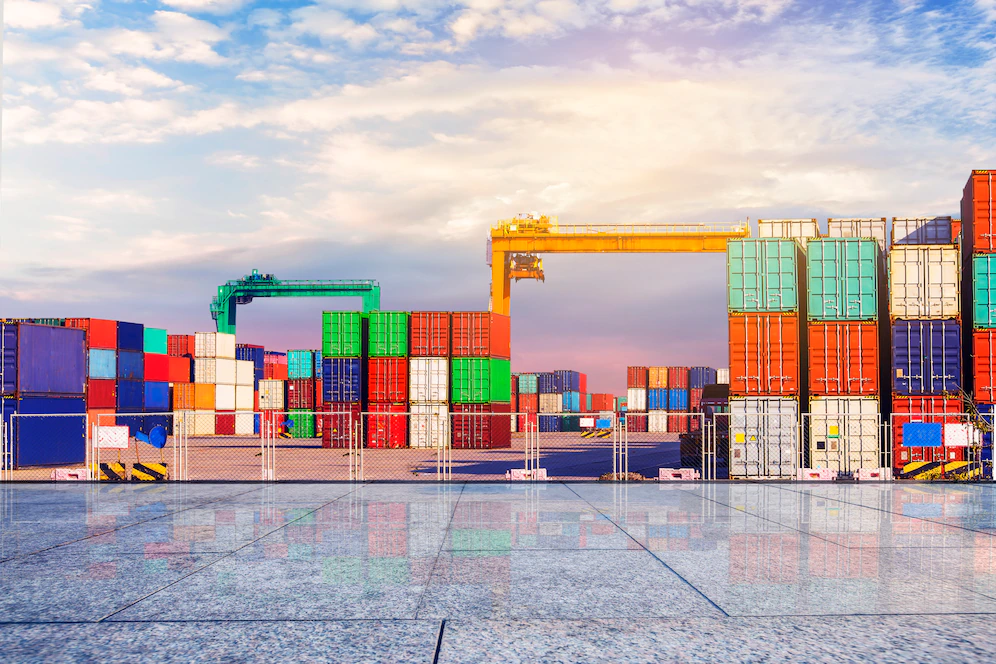In this article, you’ll find the importance of digital transformation for logistics and how it will affect future business. This article dives into what digital transformation is, its importance to logistics on a global scale, and how it will change in the next few years.
With the integration of eCommerce and IoT technologies into every aspect of business, the business has changed forever. Digital transformation is the new buzzword that is used as a catch-all phrase to describe the digitalization of entire industries, whether they are B2B or B2C.
Digital Transformation: What is it?
Digital transformation is the process of applying digital technologies in order to improve business operations. In other words, it’s the application of new technologies to create a more integrated and efficient business environment.
The benefits of digital transformation are manifold. For one, it can help reduce costs by streamlining processes and automating tasks. It can also boost efficiency by improving communication and collaboration between different parts of an organization like Incrementors digital marketing solutions, and last but not least, it can improve customer experience by making interactions with an organization more interactive and personal.
The impact of digital transformation on logistics is significant. For starters, digitization can help reduce the time required to complete certain tasks. Additionally, it can make tracking and monitoring shipments easier, minimizing the risk of accidents or loss. And finally, it can enable better customer engagement by allowing customers to track their orders online.

In short, digital transformation is a crucial initiative for any business that wants to remain competitive in today’s economy. If you’re not already using digital technologies to improve your logistics operations, now is the time to start!
Digital Transformation Impact on Logistics
Logistics is one of the most important and integral parts of an organization’s overall digital transformation. By implementing digital solutions, organizations can improve both their customer experience and operational efficiency.
In this blog section, we will explore the impact of digital transformation on logistics and discuss the importance of being able to seamlessly integrate digital solutions into your existing processes.
Digital Transformation: Impact on Operations
When organizations move to a digital environment, they can improve both their customer experience and operational efficiency. For example, by implementing an e-commerce solution, businesses can reduce wait times for customers and increase sales volumes.
Additionally, by using electronic data capture (EDC), organizations can optimize inventory management and improve communication between departments. The benefits of implementing digital solutions go beyond operations. By making information more accessible, businesses can boost creativity and innovation within their teams.
Furthermore, by automating processes, companies can reduce costs and improve workflows. As a result, digital transformation has a far-reaching impact on logistics and all aspects of business operations.

Digital transformation is a big deal for logistics. Here are some of the ways it impacts the industry:
- Improved visibility and control over operations.
- Greater efficiency through optimized processes and smarter data management.
- Improved customer experience through enhanced communication and feedback mechanisms.
- Increased ability to manage risks and respond to changing conditions.
- Greater trust and confidence in the logistics service provider.
- Increased profitability through optimized processes, improved efficiency, and reduced costs.
- Improved reputation with customers by managing risk and communicating transparently.
- Smaller operating units with more streamlined processes that are easier to scale.
What is the Importance of Digital Transformation in Logistics Business?
Digital transformation is a process that helps organizations to modernize their business processes in order to improve customer experience and increase efficiency. In the logistics industry, digital transformation can help reduce costs while improving customer experiences. Additionally, it can help improve the company’s competitive edge by enabling it to better monitor and manage its inventory.
In order for digital transformation to be successful, there are a number of key considerations that must be addressed. First and foremost, it is essential that the organization has a clear vision for what they want to achieve. Second, they need to ensure that the right tools and technologies are in place to support this vision.
Third, they need to ensure that everyone in the organization is aware of the goals and objectives of digital transformation and is committed to making it a reality. Finally, it is important to continuously assess and adjust the digital transformation strategy as needed in order for it to be successful.
Overall, digital transformation is an important process for logistics organizations as it can help them improve their efficiency and customer experiences. Digital transformation is an important trend for many businesses, yet it has a significant impact on the logistics industry.
Here are eight reasons why digital transformation is essential for logistics businesses.

1. Increased Efficiency:
Digital transformation allows companies to streamline their operations and improve efficiency. This can save time and money, which is especially important in the logistics industry where delays can cause huge problems.
2. Improved Customer Experience:
By improving customer experience, digital transformation can help companies create better customer relationships. This can lead to increased sales and loyalty, which is crucial in today’s competitive market landscape.
3. Increased Productivity:
With increased productivity, companies can produce more goods with less manpower. This can lead to cost savings and increased profits.
4. Reduced Costs:
By reducing costs, digital transformation can help companies reduce their overall expenses. This can lead to higher profits and more sustainable growth in the long run.
5. Enhanced Security:
Digital transformation can help organizations secure their data and protect their assets from theft or damage. This is especially important in the logistics industry where sensitive information is often stored on computers and other devices.
6. Increased Flexibility:
Digital transformation allows businesses to adapt to changes in the market or business climate. This gives organizations the opportunity to adjust quickly when they need to, while still complying with regulations.
7. Improved Customer Experience:
Digital transformation can help companies improve their customer experience by making it easier for customers to do business with them. In the logistics industry, this means a more streamlined process that is designed to make life easier for both customers and carriers alike.
8. Enhanced Branding:
Digital transformation can help businesses enhance their brand image by using technology to promote their products and services. You can also use Reputation management services offered by Incremetors to enhance your branding. For instance, Amazon uses its massive data collection capabilities to send out personalized recommendations for customers based on what they have bought previously and what they are looking for at present.
Conclusion
With the ever-growing demand for faster, more efficient, and interconnected supply chains, logistics has become an essential part of business operations. In fact, according to a report by the Boston Consulting Group and PwC, logistics will account for $2 trillion in global spending by 2025 and represent one-third of all Global Trade Growth. This means that organizations of all sizes must pay close attention to how they are managing their logistics if they want to remain competitive.
To Read More Tech Blogs Visit: Technical Nick

















